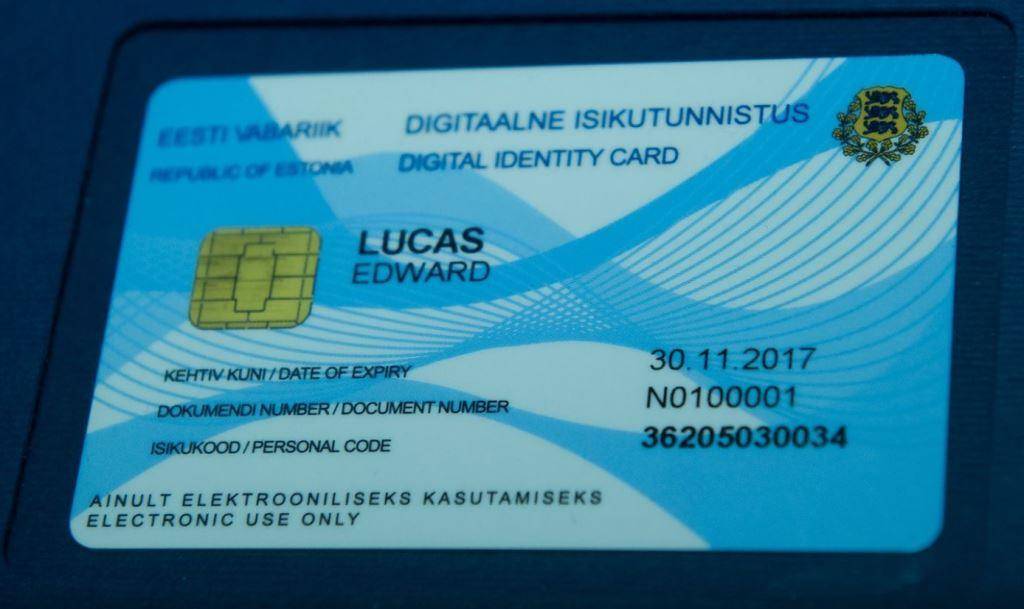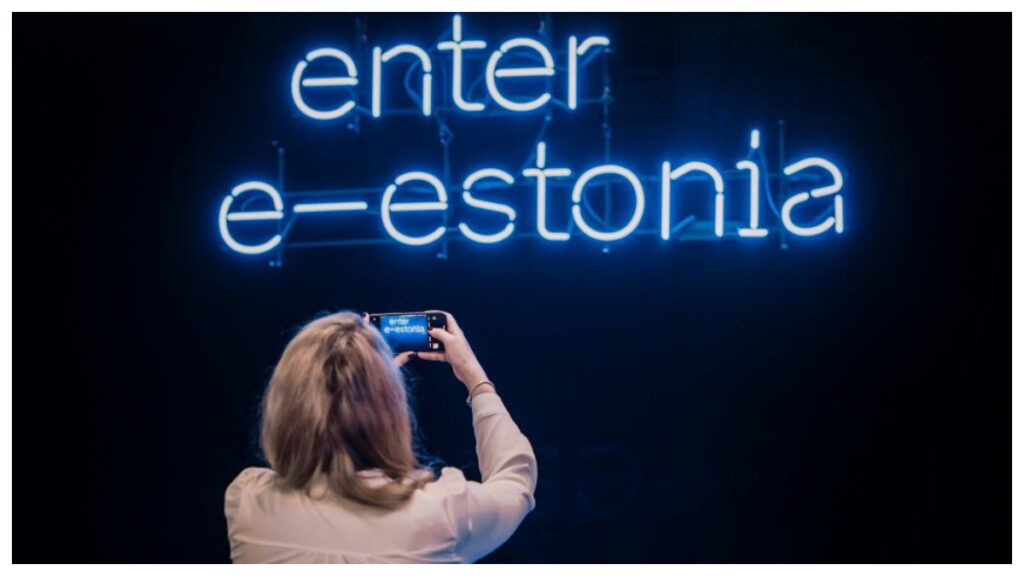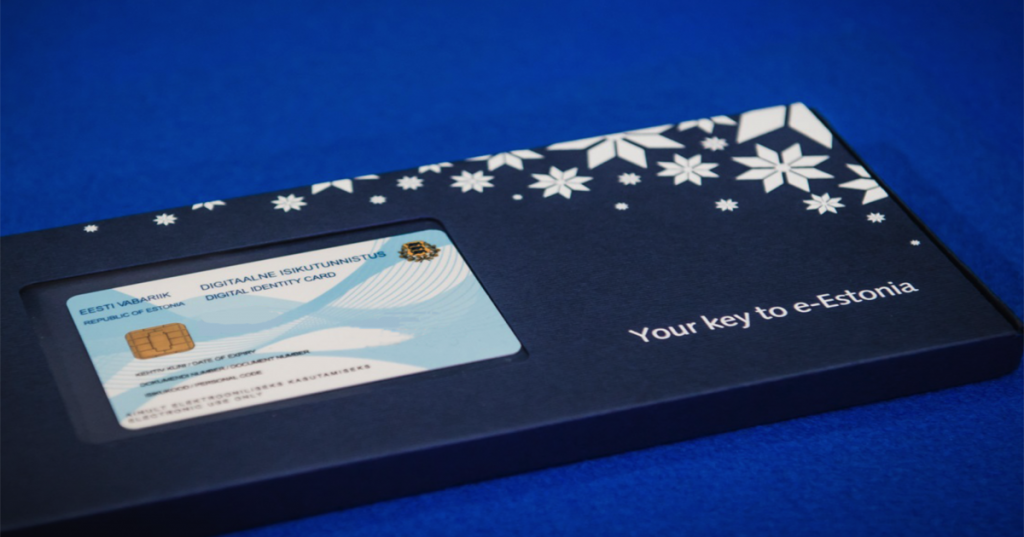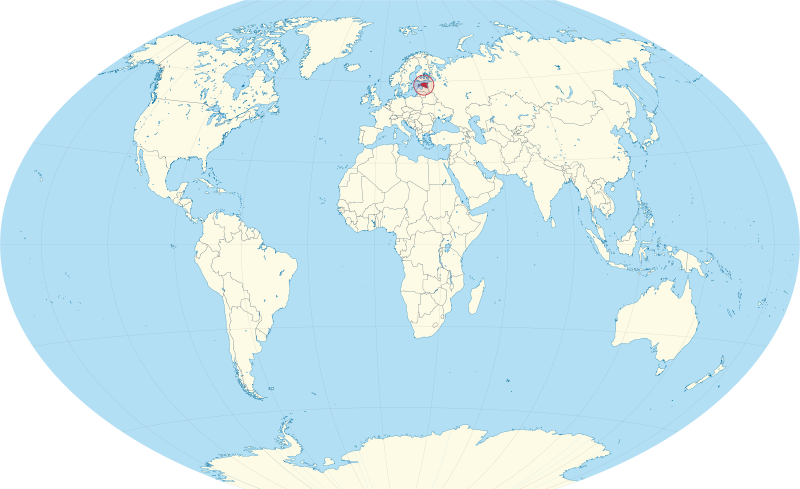Estonia is set to make a history by starting the first supranational e-residency scheme in the world.
More than a hundred years ago, the renowned Estonian poet Gustav Suits proclaimed: “Let us remain Estonians, but let us become Europeans!” This task has successfully been accomplished for the ancient Nordic nation, but from 1 December, foreigners can turn the old call around and say: “Let us remain world citizens, but let us become Estonians!” as the ambitious national startup project of giving e-residency to people around the world kicks off.
The e-resident number one will be Edward Lucas, senior editor at the Economist magazine, and a great long-time friend and advocate of Estonia. The e-residents number two and three will respectively be Steve Jurvetson, an American venture capitalist with Estonian roots, and Tim Draper, Jurvetson’s colleague at the venture capital firm Draper Fisher Jurvetson.
What is e-residency?
While Lucas is presented by the Estonian president Toomas Hendrik Ilves with the first e-residency card, which looks similar to the one used for bank services, many might still wonder about the purpose of the project. The answer is simple – Estonians are always looking for something that would help make their country more well-known and wealthier, ensuring more security along the way. “What has brought us here, doesn’t take us forward,” Ilves said at the beginning of the year. The search for “next big thing” was on.

It is widely accepted that Estonia has gone through a quick and successful transition period since 1991. The Tiger Leap of 1996 kick-started the storm towards embracing the latest solutions in information technology and by the end of the decade, banks introduced online banking. The e-governmental services followed in the new millennium and by 2014, it’s customary routine for its citizens to pay taxes, transfer money, vote, buy prescriptions and sign documents online, using the digital ID-card.
The digital success story about wired Estonians found its way into world’s media often in recent years, but the local expats in the increasingly international country started to feel a little bit “digitally left out”. Without the ID-card, so far meant only for Estonian citizens and residents, the foreign dignitaries and business people could not enjoy all the benefits.
The first thoughts about issuing foreigners a version of the ID-card started to circulate some years ago, but the advancement of technology and bright minds brought a concrete plan this year.
The search for new big concepts for Estonia brought along a business idea contest this spring, initiated by the Estonian Development Fund and Sten Tamkivi, the former head of Skype who recently founded a new company called Teleport. Quite a few projects that had potentially global attractiveness were proposed and one of them was called “10 million ‘e-Estonians’ by 2025”, presented by Taavi Kotka, Ruth Annus, Siim Sikkut – all government officials.

The aim was “to make Estonia great: make sure that at least 10 million people around the world choose to associate with Estonia via e-identities”. Their idea won the contest and formed a base for the current e-residency plan, which then quickly gained an unprecedented support from all political parties and was given a green light by the parliament for the roll out from the start of December.
In a nutshell, it means that interested applicants can obtain a digital ID that will let them use Estonia’s digital services online around the world. Here, it is important to distinguish that the e-residency card does not equal with the Estonian citizenship. As the project leaders have emphasised, the e-residency is a privilege, not a right – the state reserves a right to withdraw the card, should someone be keen on engaging in dodgy affairs.
The e-residency card does not carry a person’s photo and is therefore not an identity card per se. But it is equipped with a chip, a personal code, and holds biometrics data, such as eye and fingerprint. The applications will be processed by the Estonian Police and Border Guard and appropriate security and background checks will be conducted before approval.

The managers behind the e-residency project have admitted it is a “state startup” – it is not entirely clear for no one where it would lead. But it is anticipated that foreign investors, shareholders in Estonian companies, foreign employees and family members of companies based in Estonia, foreign scientists and students, and startup entrepreneurs would be interested.
Taavi Kotka, the deputy secretary general on ICT at the Estonian Ministry of Economic Affairs, has previously said that with by offering e-residency, Estonia has a great potential to attract entrepreneurs needing an investment account in the European Union. It would give them the opportunity to create a company and open a bank account in the EU in just one day, as setting up a company in Estonia is simple.
“The adoption of non-resident ID cards is an additional argument in favour of investing in Estonia. Today, it is difficult for a foreign investor to actively participate in the executive management of a company. The non-resident ID card and digital signature would provide the necessary flexibility,” Kotka said.
He also pointed out that in addition, reinvested profit is tax-free in Estonia, and the highly developed e-banking environment gives users immediate control of their assets from a distance. “This means Estonia has the potential to be attractive to entrepreneurs who need an investment account and this would result in additional customers and capital for Estonian businesses.”

12,000 applicants
The application round that opened few months ago was encouraging. Within a short space of time, about 12,000 people showed interest, mostly from the United States, Finland, the United Kingdom, Canada and India. Around half of them said that they would want to create a company.
Kotka said last week that this is already pointing to a winning formula, as making Estonia more attractive in the international business environment and supporting the country’s economy and society in globalisation is the main purpose of the e-residency project. Indeed, Estonia is consistently ranked by the World Bank and the World Economic Forum as one of the easiest and most efficient places to do business, therefore giving entrepreneurs from around the world an opportunity to take advantage of this business environment makes a good sense.
The project initiators also admit that technically, the state is not ready yet for the millions of new e-residents. To start with, the prospective e-residents will have to physically travel to Estonia, to collect their e-resident ID card, but it’s planned that in the future, a person can obtain it from an Estonian embassy or a consulate abroad. The other issue is that the potential e-residents are eager to learn more about the Estonia’s digital services and about the country in general, but until now there is no consolidated information source yet.
One thing is for sure – Estonia continues to attract positive media hype from around the world for its tech-savvy initiatives. Curiously, the Australian ABC News asked whether this is the beginning of the end of the nation state, an ironic twist for the country that has been accused by some as being too nationalistic. It remains to be seen whether the e-residency project will succeed as aspired, but judging by the past successes in IT, the country has got a reason to be optimistic.


I see this as an exciting time for Estonia – also potentially a profitable one. One fact check though – the first E-resident card was presented to Barack Obama by Ilves on his visit a few months ago 😉
Natas, the card presented to Barack Obama was a sample Estonian ID card, not an e-residency card. Edward Lucas will officially receive the first e-residency card.
No it was not, that was an example ID-card itself, not e-resident document.. sorry!
I would like to apply fro the Estonian passport, but will need someone to help me translate?….
To apply, please see this: https://e-estonia.com/e-residents/apply-2/
Dear Silver, it was Gustav Suits who said “Let us remain Estonians, but let us become Europeans!” not Jakob Hurt.
My apologies! You are, of course, right! Thanks for the note and it has been corrected now. Jakob Hurt declared instead that if Estonians cannot become great in size, so we must become great in spirit – also perfectly suited with the topic.
I want one…
Actually I applied ID card today and it will be ready within ten days. What a exciting moment!!
Great article
This is a potential rip off. Estonia has laws where police, tax and other agencies can take money from your account without a court order, just if they think you owe them! It happens now to many people. Bank workers wear police uniform, etc. There’re too many flaws in this. And also, it’s a spit in the face to those people, who were unlucky to be born in a russian speaking family – those didn’t get any citizenship and have no voting rights. The time will show if this is going to work. But this is now a highly controlled police state and people really have no rights and low life quality.
What? The police and the Tax office can take money from your account without a court order? Are you mad? 😀 There is no such thing.. and everything else you said, has no proveable facts into it..
They have been practising that in Latvia all this time…
Coward that you can’t put your name up.
“Bank workers wear police uniform, etc.” – what country are you talking about, because its not Estonia I live in.
This goes to “no voting rights” and “highly controlled police state” etc. also.
You must really hate estonians that you are spreading lies like those 🙁
I live in Estonia for a long time and can say, this is not true. 🙂 On the contrary.
“police state”? You blind or death? Sorry but the numbers of police in Estonia is constantly decreasing, I wish it would be the other way!
You can’t make history, like you make a sandcastle, nor does President Toomas Hendrik Ilves need an article, since you specified by using the president’s name. Ei taha juuksekarva lõhki ajada, vaid lihtsalt sõbralikult mainin 🙂
An interesting article on an idea with such exciting potential for the future. Thanks.
Wow! Congratulations Estonia! You have been Anguilla’s envy for a long time because we are also a small nation seeking internationalization with substance and transparency. You are our role model in order to become an “incubator” for larger nations and companies where smallness, easy conversion, flexible legislation are some of the key factors for start-up success at lower cost. We hope there are ways we can collaborate! Grateful for your leadership, Lynwood Bell, Anguilla-Counts, Inc. (a not for profit organization)
Hi Silver Tamber, its so great if i got the opportunity to apply e-residency card. I’m from Malaysia & planning to be aSenior Lecturer in University of Tartu. Perhaps to joint the conference in Summer School, University of Tartu- August 2015. Please help me how to apply this e-residency.
Hi Hamid, we will keep info flowing on e-residency, so please keep an eye open, but practical info here: https://e-estonia.com/e-residents/about/
BULSHIT!
This should be more than just a revocable #residency. It should be a track to #Estonian citizenship and allow foreigners an opportunity at #EU rights while also giving #Estonia greater political investment from an expanded citizenship. This could help with a belligerent Russia and weak neighbors.
i am Vietnamese how to apply for an e-residency card sir. Please advise
You can get more practical information here: https://e-estonia.com/e-residents/about/
Dear sir: Your country is a jewel! I can see why your people are so proud of their heritage!! Protect it!!
hi silver i want to know the exact cost of applying E card for estonia and what language is using this country pls tell me thanx
Having left the UK to work and live in Saudi Arabia, I have been looking for a place to live when I finish my contract here. After several weeks of stats analysis, Estonia came in 6th place for countries that allow full freedom of thought,the rest were other European countries and the USA. Thus this idea of e-residency is certainly something I am going to examine closer.
and how to apply for e-estonia resident \\\\\\
https://e-estonia.com/e-residents/apply/